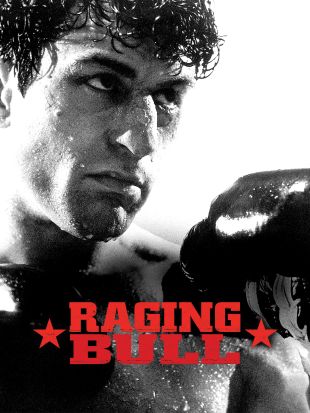
In Raging Bull, Martin Scorsese and Robert De Niro explore the soul of a profoundly violent man and search for the human core buried deep inside him. In many ways, De Niro's performance as Jake does make him seem more like an animal than a human being; he's ruled by a volatile mixture of arrogance, paranoia, sexual confusion, and fear, and he can deal with his emotions only through violence. The physical brutality that makes Jake a champion in the boxing ring cripples his relationships with his wives, his business associates, and his brother. But even though La Motta is in many ways controlled by the worst parts of his nature, he's also aware of it on some primal level. When he commands his brother to hit him as hard as he can, it's almost as if he wants someone to knock the fight out of him (while believing, arrogantly but accurately, that it can't be done), and as Jake literally beats his head against a wall in a Florida jail cell, shouting "Why? Why? Why?" it sounds as if he's begging for an explanation of his entire life. In nearly any other film, a performance as strong and intricately detailed as De Niro's would control the entire show, but here Joe Pesci and Cathy Moriarty both offer superb, career-making support, while Scorsese's peerless visual sense makes this more than just another star vehicle. The boxing sequences are shot, choreographed, and edited with such audacious power and impact that it's hard to believe that they occupy only ten minutes of screen time; the beautifully designed tracking shots, the use of slow motion, and Michael Chapman's excellent black-and-white photography lend the film a stylized edge while sharpening its visceral emotional impact. With screenwriters Paul Schrader and Mardik Martin, Scorsese tells the story not of a boxer or a bad man, but of a lost soul struggling for a way out of the emotional damnation of his own brutal nature; and he tells it with such unblinking horror and understated compassion that Raging Bull has been widely acknowledged as one of the most powerful films of its era.
